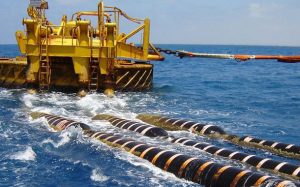DBRS global credit rating agency’s latest analysis on Greece highlights significant progress, enhancing the nation’s resilience to external pressures through extensive economic and fiscal reforms. This progress boosts long-term growth prospects, driven by increased investments, strong export performance, and the cumulative benefits of ongoing economic restructuring, including initiatives like the National Recovery and Resilience Plan.
However, despite these advancements, Greece still faces a substantial investment gap compared to its eurozone peers. After years of sluggish investment, the formation of gross capital as a percentage of GDP started to slowly accelerate in 2020.
The credit rating agency anticipates Greece’s investment expenditures to continue rising in the coming years, buoyed by resources from the Recovery and Resilience Mechanism (RRF). The Greece 2.0 Recovery and Resilience Plan aims to bolster real GDP by 7 percentage points by 2026, fostering increased investments and productivity.
Nevertheless, achieving higher investment levels will necessitate foreign investments in key sectors of the economy. Additionally, the loan plan could stimulate bank credit provision to businesses, further supporting investment endeavors.
DBRS suggests that the RRF has the potential to directly fortify Greece’s capital base by enhancing economic infrastructure and workforce development. However, these efforts must be complemented by reforms targeting labor skills and social cohesion.
Establishing an appealing investment climate hinges on addressing structural weaknesses like bureaucratic hurdles, judicial delays, promoting economies of scale, and finalizing land registry reforms.
The revised National Recovery and Resilience Plan, ‘Greece 2.0’, was adopted in, 2021, by the Economic and Financial Affairs Council of the European Union (Ecofin), amounting to 35.95 billion euros.
It encompasses investments and reforms across four pillars: Green Transition, Digital Transformation, Employment-Skills-Social Cohesion, and Private Investments and Transformation of the Economy.
With resources allocated to grants and loans, it aims to mobilize over 60 billion euros in total investments by the end of 2026, following its approval in 2023, which mainly focused on new investments and reforms under REPowerEU and expanding the existing loan program.




